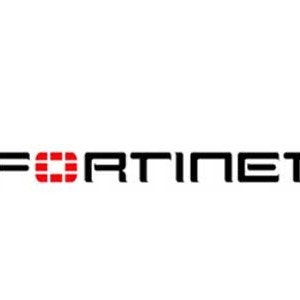
After delivering a nasty warning in the first quarter, Fortinet Inc (NASDAQ:FTNT) returned to form in the second. It beat its own revenue expectations by $4.4 million, posting $147.4 million. Earnings were in line with expectations, and it appeared to resolve the larger part of the issues that caused the shortfall in Q1. There are four key takeaways from these results that might lead you to be positive on the stock.
First, in the previous quarter, Fortinet Inc (NASDAQ:FTNT) had explained that its billings miss of around $12 million was a combination of weakness in orders from telco service providers ($6 million-$9 million), and the Latin American region ($4 million-$6 million). Moreover, it had an inventory shortfall that created a $2 million-$4 million shortfall. The good news is that telco orders came back in second quarter, and Fortinet Inc (NASDAQ:FTNT) successfully rectified the inventory issue. However, Latin America still remains tough
The second takeaway is there were some positive signs from deal sizes reported in the quarter

Source: company presentations.
The larger deals (above $500,000) came back strongly in the quarter, and this is probably due to a return to spending by the telcos. In addition, Fortinet has seen a strong rise in the number of smaller deals signed in the last three quarters. The last point is a sign that it’s capturing the growing market for small and medium size business who want to prioritize cyber security.
The third positive point is that Fortinet’s guidance looks overly cautious.

Source: company accounts.
In fact the second quarter turned out to be consistent –in terms of sequential growth- with the previous years. However, the guidance for the third quarter looks historically conservative.
The final takeaway is that Fortinet made some positive commentary in its conference call. The company expects to take market share, and declared that it wasn’t seeing any pricing pressures at the moment. This suggests that even in a weak spending environment, it can still generate growth.
The cons
There are three reasons to be cautious over the stock.
The first is that competition is going to increase. Cisco Systems, Inc. (NASDAQ:CSCO)’s purchase of Sourcefire will surely result in increased investment. Cisco Systems, Inc. (NASDAQ:CSCO)’s security division’s growth turned negative in its last quarter, and the Sourcefire acquisition is an attempt to regain traction in the sector.
This sort of deal is critical to Cisco Systems, Inc. (NASDAQ:CSCO) because its core switching and routing divisions are generating very-low-single-digit-growth, it needs to push growth in its peripheral activities. Moreover, Cisco Systems, Inc. (NASDAQ:CSCO) can bundle security solutions with a whole range of other technology offerings.
In addition, Check Point Software Technologies Ltd. (NASDAQ:CHKP) has released some lower priced products aimed at the small and medium size business market that Fortinet is traditionally strong. Check Point Software Technologies Ltd. (NASDAQ:CHKP) has long been known for its high-end solutions, but this move will bring it into more direct competition with Fortinet. Given that Check Point needs to get product sales growing again, it is reasonable to more competition here.
Similarly, Palo Alto Networks Inc (NYSE:PANW) missed estimates last time around, and it will be under pressure to keep its growth profile intact. Indeed, in its conference call, Fortinet referred to the ‘enormous amount of money’ that Palo Alto Networks Inc (NYSE:PANW) spends on marketing.
The second reason for caution is that the correction of Fortinet’s inventory shortage came at a price. Fortinet outlined that it would be decreasing expectations for inventory turns to two to three, from above four times. This just means that more working capital will have to be allocated towards inventory, as it will be turned over at a lower rate in future. In other words, long-term cash flow expectations should be reduced.
Indeed, Fortinet lowered full-year free cash flow expectations to $130 million-$135 million, from $140 million-$150 million previously. Note that when it started the year, its free cash flow expectation for 2013 called for $180 million-$190 milllion. That’s a worrying downtrend.
The final negative takeaway is that the company expressed some lackluster commentary on the macro environment. Latin America continues to be weak, and Fortinet’s European sales rise of 22% in the current quarter will surely not be repeated anytime soon. Management expressed caution over both these regions. In addition, management spoke of sales cycles lengthening, and customers wanting to buy in smaller deal sizes. Both are classic signs of a slowing end market demand.
Where next for Fortinet?
In conclusion, there are mixed signals from the recent report. While the third quarter guidance looks conservative, the increase in working capital requirements is a concern for the long-term.
As discussed above, the free cash flow guidance for the full year has been reduced by $52.5 million or 28% throughout the course of the year. Indeed, the $132.5 million midpoint forecast for free cash flow in 2013 now only represents 4.5% of its enterprise value. That looks to be pretty fairly valued in my book, and given the weakness in tech spending, it makes sense to wait for a dip here.
The article Is This Tech Stock About to Make a Comeback? originally appeared on Fool.com and is written by Lee Samaha.
Lee Samaha has no position in any stocks mentioned. The Motley Fool recommends Check Point Software Technologies and Cisco Systems. The Motley Fool owns shares of Check Point Software Technologies. Lee is a member of The Motley Fool Blog Network — entries represent the personal opinion of the blogger and are not formally edited.
Copyright © 1995 – 2013 The Motley Fool, LLC. All rights reserved. The Motley Fool has a disclosure policy.




